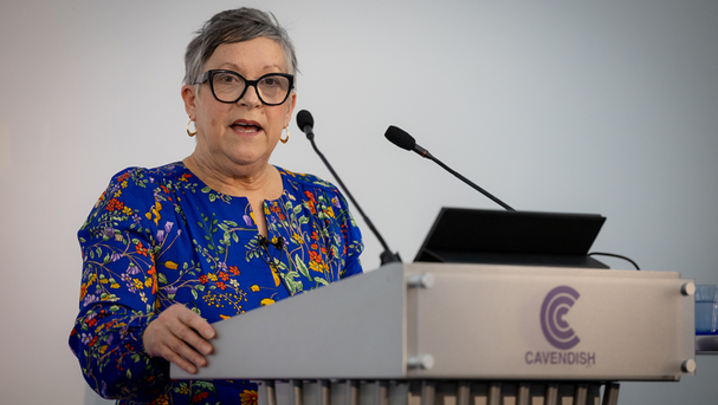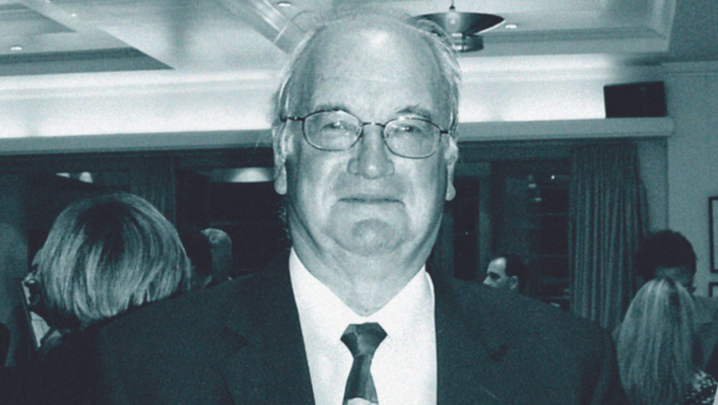Many are hoping that 2024 will see an upturn in the fortunes of freelancers seeking work in TV, reports Simon Bucks
Good riddance 2023, you were a lousy year for television freelancers. Will 2024 be better? The optimists are pinning their hopes on an upturn now that the Hollywood strikes have been settled. The realists are not so sure.
“The UK creative economy and the freelancers who work in it will continue to be impacted by a double whammy,” says Mark Endemaño, Co-Head of Media and Entertainment EMEA at the consultancy Alix Partners. “First, on the free TV side, there is less commissioning due to the downturn in advertising. Second, the cost of living will continue to cause a high degree of churn for the streaming services – so they, too, will be commissioning less as they try to work out how much content they can have.”
His gloomy forecast is echoed by Bectu, whose survey last autumn suggested that more than 50% of freelancers in unscripted were unemployed. “In unscripted, especially, the squeeze on the licence fee, the lack of advertising revenues and the cost of living are all still there,” says Philippa Childs, Head of Bectu.
This perfect storm was underlined in late January when Channel 4 confirmed plans to cut 240 jobs. Only last summer a report by Oliver & Ohlbaum Associates had talked of the UK as “a global powerhouse in TV production”. The post-Covid boom, initially in full flood, has now become a drought for freelancers such as Alison Martin, Deputy Chair of the RTS Southern Centre and a hugely experienced executive producer with credits including The Martin Lewis Money Show.
“I haven’t worked since September,” says Martin, who is now letting her spare room on Airbnb to bring in some cash. “I went to a talent manager networking event and it was just full of unemployed associate producers, researchers and producers, who saw that I was an exec and thought I could give them work.
“Someone at a production company told me their normal clients are reluctant to commit and keep putting things off and asking for reduced budgets.”
Topical TV, part of Avalon, where Martin worked in 2022, is one of several indies to shut down recently. Its former Managing Director, Chris Riley, says the closure – after 31 years – is a tragedy because the business was still profitable. But “its viability was compromised by a combination of fewer commissions, shrinking tariffs and the challenges of running an indie outside the big production centres”.
One of those, Yorkshire, had mostly weathered the storm last year, according to Lisa Holdsworth, a top screenwriter and showrunner, and the local RTS centre Chair. “We’ve had a fantastic year for drama, so our crews were really booked up, but we know now that they’re twiddling their thumbs. Not a week goes by when somebody doesn’t say, ‘I’ve packed it in, I’m teaching’ or something.”
Holdsworth highlights the cancellation of major series such as Gentleman Jack, but also the continuing drama Doctors in Birmingham. “That couldn’t have come at a worse time, especially after losing Holby in Bristol. These shows are a training ground for directors, actors and writers.”
Rachel Watson, Chair of RTS East, agrees. Two of the Doctors writers live in Norwich, and completed the creative writing course at the University of East Anglia. “Cancelling Doctors has a massive impact in the Midlands but it’s also affecting people around the country who cut their teeth on these sorts of shows.”
"Freelancers need more rights and there needs to be a safety net"
Ed Russell, RTS Wales Chair, remains upbeat. Having retrained as a script supervisor he was busy throughout 2023, including on Casualty – which is made in Cardiff – and a BBC Three comedy, Boarders. Since then, though, the phone hasn’t rung. “As a freelancer, you’re always worried about what’s going to happen next, I don’t think you ever get used to that. So, I’m slightly concerned because there are no leads whatsoever, though that’s not unusual at this time of year.”
He has funds to last until Easter, unlike many TV workers who have been forced to turn to other jobs to pay the bills. They include Amber Gough, 27, whose promising career has stalled. After studying film and TV production at Anglia Ruskin University, and a spell at the BBC, she secured stints as a runner and director’s assistant on The Crown. “Then the strikes started, and I’ve only had two days as a daily runner since mid-March 2023,” says Gough. She is now a part-time tour guide at the Imperial War Museum Duxford, but is sticking with her ambition to become a director.
She highlights the challenge facing most TV freelancers: “I could get a job in a shop, but if I’m called up about a director’s assistant role, they will want me to interview and start almost immediately. With normal jobs you have to give notice, so it doesn’t work.”
The challenges facing newcomers such as Gough are particularly worrying to Lynn Barlow, Chair of RTS West of England and an executive producer and Assistant Vice-Chancellor at the University of the West of England. She warns: “It’s going to be incredibly difficult for junior entrants. It’s always tough when there’s a downturn in any business; you’ve got a bigger field to pick from and new talent tends to get pushed out.”
Mel Rodrigues, founder of Gritty Talent, which works to grow diversity and inclusion in TV, fears that many who have taken jobs outside the industry will not return: “We were told it was a blip, wait till September, give it six months. We’re now tipping into a year. Who can afford to be out of work for a year, and then be ready at a moment’s notice to jump back in?
“It’s a massive own goal for the industry. It’s unravelling all the very hard work done to create a more diverse workforce.”
“The situation is the worst it’s been in my 16 years in TV,” confirms Adeel Amini, series producer at Objective Media Group and founder of The TV Mindset, a mental health support group for freelancers.
Amini has set up a series of hubs for freelancers, with Talented People Managing Director Kimberly Godbolt. Two support events in London and more scheduled for Manchester and Glasgow have all been fully booked. “My thing was, I can’t magic up more jobs, what can I do? And people were saying: ‘We don’t feel very connected, we feel very forgotten. No one seems to care about us. You know, we just need some solidarity.’”
Can the industry prevent recurrent boom and bust cycles? Amini blames the unstructured and reactive nature of TV: “Recruitment is so informal. Training is almost non-existent in formalised spaces and, when you suddenly get a rush of jobs, you get people who aren’t trained.”
“The reason there’s so much inward investment in the UK is because of the highly experienced crews,” argues Childs at Bectu. “So, is it morally defensible that, when there’s a crisis, responsibility is handed over to a charity? In France, there is a scheme that provides income support and social protection to freelancers between jobs. We aren’t against a free-market freelance model, because our members like working on different projects, but freelancers need more rights and there needs to be a safety net where something like this happens.”
Back in Yorkshire, Holdsworth remains resolutely optimistic: “We’re very good at talking ourselves into a crisis and I think it’s important to look at the positive. We still have an amazing skills base, both behind the camera and in front of it. We are the envy of other nations.
“But we just have to make sure that we treat people right and we futureproof, so that the next time there’s a crisis – and, let’s face it, there will always be another crisis – we will be more ready for it.”







